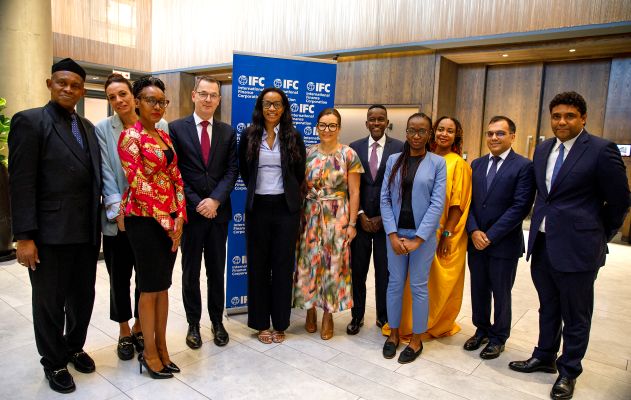African Risk Capacity Limited (ARC Ltd.) and the International Finance Corporation (IFC) have signed a Letter of Engagement today to strengthen agricultural insurance solutions in Africa. This partnership aims to create a safer and more attractive environment for investment in agriculture by reducing risks linked to climate change and other uncertainties. The signing took place at the Marriott Hotel Melrose Arch in Johannesburg, South Africa, with Lesley Ndlovu, CEO of ARC Ltd., and Sérgio Pimenta, IFC Vice President for Africa, along with their teams.
Agriculture is the backbone of Africa’s economy, providing livelihoods for millions. Yet, farmers and agribusinesses struggle to secure funding due to the high risks posed by unpredictable weather, market fluctuations, and limited financial protections. Africa has approximately 183 million hectares of cultivated land, with 95% of it dependent on rainfall, making the sector highly vulnerable to climate variability. The World Bank estimates that food demand will increase by 70% by 2050, requiring massive investments in agriculture. However, in Africa, less than 5% of farmland is irrigated, and access to financing remains a major barrier to growth. Without effective risk management solutions, many investors hesitate to support agricultural projects, leaving farmers exposed and food production unstable.
Through this new partnership, ARC Ltd. and IFC will develop insurance solutions that help farmers, financial institutions, and agribusinesses manage these risks. The initiative will support the IFC Africa Inclusive Insurance Program (AIIP) by introducing insurance products that protect farmers from climate shocks and other uncertainties. This will not only reduce financial losses but also encourage more investment in agriculture, leading to increased food production and improved food security across the continent.
The collaboration will focus on several key areas, including identifying priority regions for agricultural insurance, developing tailored insurance products, and working with governments, financial institutions, and AgTech providers to expand access to risk protection. By ensuring that farmers and businesses can recover quickly from losses, this initiative will create a more stable and productive agricultural sector.









